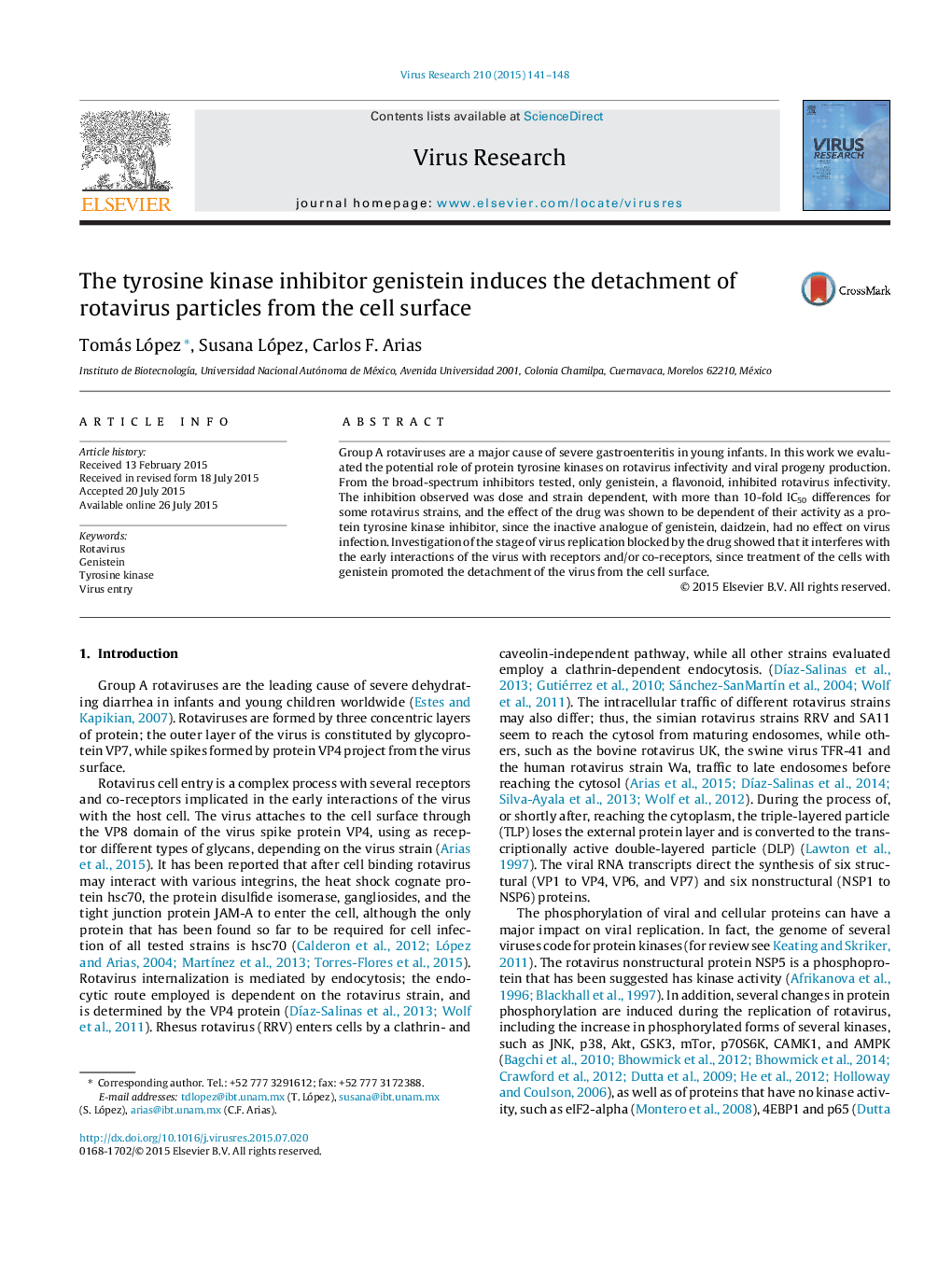| Article ID | Journal | Published Year | Pages | File Type |
|---|---|---|---|---|
| 3428046 | Virus Research | 2015 | 8 Pages |
•The tyrosine kinase inhibitor, genistein, inhibits rotavirus infection.•The effect of genistein is dose and strain dependent, and is related to its tyrosine kinase inhibitor activity.•Genistein induces rotavirus detachment form the cell surface.
Group A rotaviruses are a major cause of severe gastroenteritis in young infants. In this work we evaluated the potential role of protein tyrosine kinases on rotavirus infectivity and viral progeny production. From the broad-spectrum inhibitors tested, only genistein, a flavonoid, inhibited rotavirus infectivity. The inhibition observed was dose and strain dependent, with more than 10-fold IC50 differences for some rotavirus strains, and the effect of the drug was shown to be dependent of their activity as a protein tyrosine kinase inhibitor, since the inactive analogue of genistein, daidzein, had no effect on virus infection. Investigation of the stage of virus replication blocked by the drug showed that it interferes with the early interactions of the virus with receptors and/or co-receptors, since treatment of the cells with genistein promoted the detachment of the virus from the cell surface.
